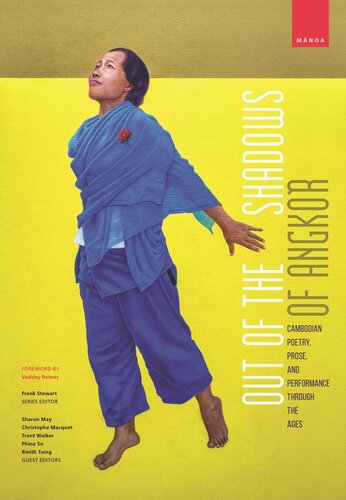

Most ebook files are in PDF format, so you can easily read them using various software such as Foxit Reader or directly on the Google Chrome browser.
Some ebook files are released by publishers in other formats such as .awz, .mobi, .epub, .fb2, etc. You may need to install specific software to read these formats on mobile/PC, such as Calibre.
Please read the tutorial at this link: https://ebookbell.com/faq
We offer FREE conversion to the popular formats you request; however, this may take some time. Therefore, right after payment, please email us, and we will try to provide the service as quickly as possible.
For some exceptional file formats or broken links (if any), please refrain from opening any disputes. Instead, email us first, and we will try to assist within a maximum of 6 hours.
EbookBell Team

4.7
96 reviewsWith nearly 400 pages, Out of the Shadows of Angkor: Cambodian Poetry, Prose, and Performance through the Ages is an outstanding collection of classic and contemporary writing. The volume emerges from the thirty-year effort of a community to gather Cambodian literary and cultural works. In doing so, they not only translated rare works into English for the first time, but also helped to rescue writing lost during the Khmer Rouge regime (1975–1979).
Readers will find the following and more:
–Cambodian writing ranging over fourteen hundred years, from the seventh century to the present;
–translations of classical texts;selections of modern Cambodian poetry, prose, and folk theater;
–contemporary writings by Cambodian refugees and children of the diaspora living in countries from Australia to the United States, Canada, and Europe;
–visual art, including oil paintings by Theanly Chov and excerpts from a graphic novel by Tian Veasna.
“The work included in Out of the Shadows of Angkor is just a part of the vast, diverse repertoire of Cambodian literature created by those born in Cambodia, in the camps, and in new lands. Soth Polin once told me, ‘What we have lost is indescribable . . . what we have lost is not reconstructable. An epoch is finished. So when we have literature again, it will be a new literature.’ We hope this book brings out of the shadows some of the lost, hidden, and emerging gems of Cambodian literature—past, present, and moving into the future.” —From the overview essay by guest editor Sharon May